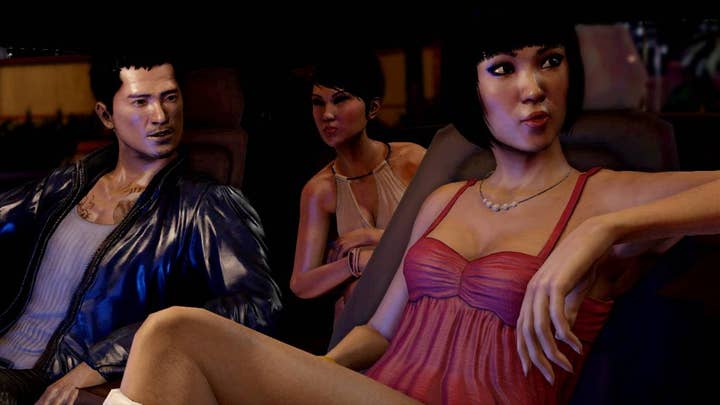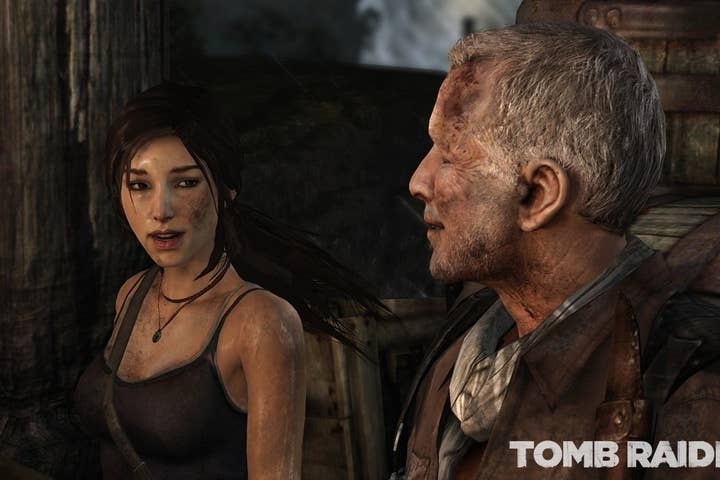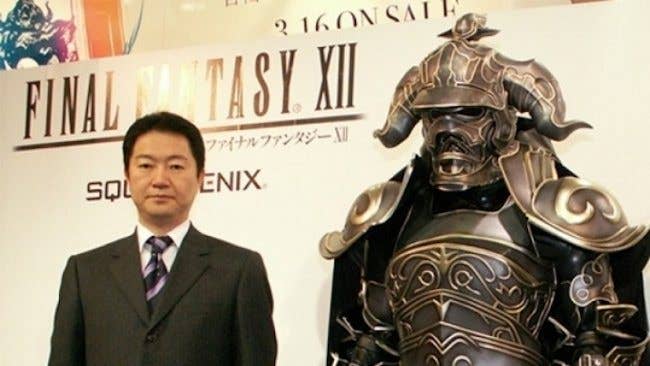Troubled Square Enix needs a fresh start
Yoichi Wada's departure must signal a turnaround if the iconic Japanese publisher is to survive the next generation
Another week, another CEO gone. It's tempting to draw comparisons between John Riccitiello's resignation from EA and Yoichi Wada's subsequent departure from Square Enix. It's even reasonable to state that the underlying causes are the same: both CEOs are being ousted because of the failure of their respective companies to adapt quickly enough to changing conditions in the games business; they are both casualties of the massive transition that is pulling the rug out from underneath slow-moving, behemoth publishers.
More than parallels, however, there are contrasts aplenty. Yoichi Wada is not John Riccitiello, and Square Enix is not EA. These men and the companies they helmed have charted very different courses through these troubled waters, and have slipped up in very different ways. It's not helpful to lump them in together; it makes for a good press narrative, but tells us little about the factors that are pushing and pulling our industry into new shapes, making and breaking companies and careers along the way.

Where Riccitiello was a marketing and brand management guy who served two lengthy stints at EA (and spent the time in the middle immersed in games through his VC vehicle, Elevation Partners), Wada's entire background is in the corporate banking sector. His installation at the head of Square Enix was a bizarre affair - he became CFO two months after joining the firm, COO three months later and finally president and CEO another three months down the line. Less than a year after holding his first games industry position (he claims to have been a game consumer, but admits that he didn't even know that Square was the maker of Final Fantasy), he was leading one of Japan's iconic publishers.
I'm all for the games industry reaching out to external talent from other sectors - both creatively and in a business sense - but this strategy of parachuting someone with almost no knowledge of games (or even of consumer products of any description) into a senior role at a games company is one that almost inevitably ends in disaster. Last week, I said that the shocking thing about John Riccitiello's departure was that he'd managed to hold on for so long in the face of board and investor discomfort with the pace of the company's progress. Equally, the shocking thing about Wada's departure is that he's been allowed to stay at Square Enix for 13 years - years in which the firm's franchises have been slowly devalued, its development budgets and schedules have been a tragic mess, and its efforts in new markets have been overtaken by more nimble, adaptive rivals.
Square Enix has attempted to do four things in the past decade or so. It has tried to expand further into the Western marketplace. It has tried to build a subscription MMO business. It has tried to develop a mobile and social games business, often in parallel with a cross-media approach to franchise creation. Finally, it has tried - as every publisher in the industry has - to adapt its development processes to the demands of powerful new game hardware.
With only a single exception, Square Enix has done badly at these things. Its western expansion has been driven by a single acquisition - the company picked up British publisher Eidos, on its last legs following years of horrendous mismanagement, and has to its great credit turned this into a major foothold in the west, a task greatly helped by turning around the quality of franchises like Tomb Raider and Deus Ex.
"Square Enix' development studios in Japan have simply failed to match themselves to the challenge of developing on this generation of hardware"
In MMOs, however, Square Enix was first dwarfed by Blizzard (which is fine, admittedly - one can run a great, profitable business without having to be the market leader, a fact industry commentators all too often forget) and then proceeded to seriously threaten what market share it enjoyed with the shoddy, unfinished release of Final Fantasy XIV. In mobile and social, too, the company has enjoyed minor success, but even with franchises like Dragon Quest and Final Fantasy in its catalogue, it has been completely overtaken by firms like DeNA and GREE, as well as smaller, more nimble developers. Most shockingly of all, Square Enix's development studios in Japan have simply failed to match themselves to the challenge of developing on this generation of hardware. Final Fantasy XIII limped out the door in a state that made it perfectly obvious to even the most naive of consumers that it had been hugely down-scaled and chopped up in order to get something - anything - on the market. Its supposed stablemate, Final Fantasy Versus XIII, has been in development for seven and a half years and still doesn't have a release date.
Of course, Square Enix is more than just Final Fantasy, but the troubled fate of the company's headline franchise is a clear sign of difficulties that run through the firm Yoichi Wada has led. The buck stops at the desk of a good CEO, but Square Enix's most high-profile studios and franchises in Japan have seemingly foundered upon being confronted with next-gen technology, and Wada has been powerless to fix the rot. He had to go - and his successor now faces a Herculean task.
On the plus side, Square Enix is still a company packed with extraordinary talent, both in Japan and abroad. The firm's efforts on platforms like the Wii and DS stand out as among the generation's finest, with games like The World Ends With You and Dragon Quest X displaying a remarkable depth of talent that's capable both of building new, intriguing experiences and tapping deftly into a wellspring of nostalgia for the firm's older games. Few publishers enjoy such loyalty for their franchises, and few console publishers monetise "true fans" quite as well as Square Enix does; the firm's merchandising department is small by comparison with its publishing department, but has a very comfortable profit margin. Meanwhile, in the West, an unfortunate appetite for daft adolescent controversy-raking in the marketing department is compensated for by superb development talent.

Yet all of that is meaningless without a business strategy and leadership that can harness those talents and build a profitable, sustainable business. Square Enix needs to move more rapidly and nimbly, adapting to new markets and business models that have so far been slipping from its grasp. It desperately needs to bring its spending under control. Games like Tomb Raider and Sleeping Dogs missed targets despite selling millions of units; Tomb Raider sold 3.4 million physical units so far this month, and still hurt the company's bottom line. That's not a sustainable position, and speaks to completely unrealistic budgeting and out of control costs at the company. It also begs a deeply uncomfortable question: after eight years at least in the development studio, how many copies is Final Fantasy Versus XIII going to have to sell in order to break even?
Of course, there's a wider problem here for the entire industry: our games cost too much to make, they're already too expensive at retail (which drives a disproportionately large second hand market), and the market for core games is probably reaching a plateau stage. Something has to give, and it's likely to be a combination of development costs being reined in and new revenue models being introduced (to the chagrin of many gamers, which will probably be justified in many cases). If that's a general challenge for the industry, though, it's a specific challenge to Square Enix - a company that exhibits extremes of all of those problems. Yoichi Wada did nothing to fix those problems while he was at the helm of the firm. He had to go - and if Square Enix is to have a future as a major publisher, his successor will have to do an extraordinary job of turning this ship around.

